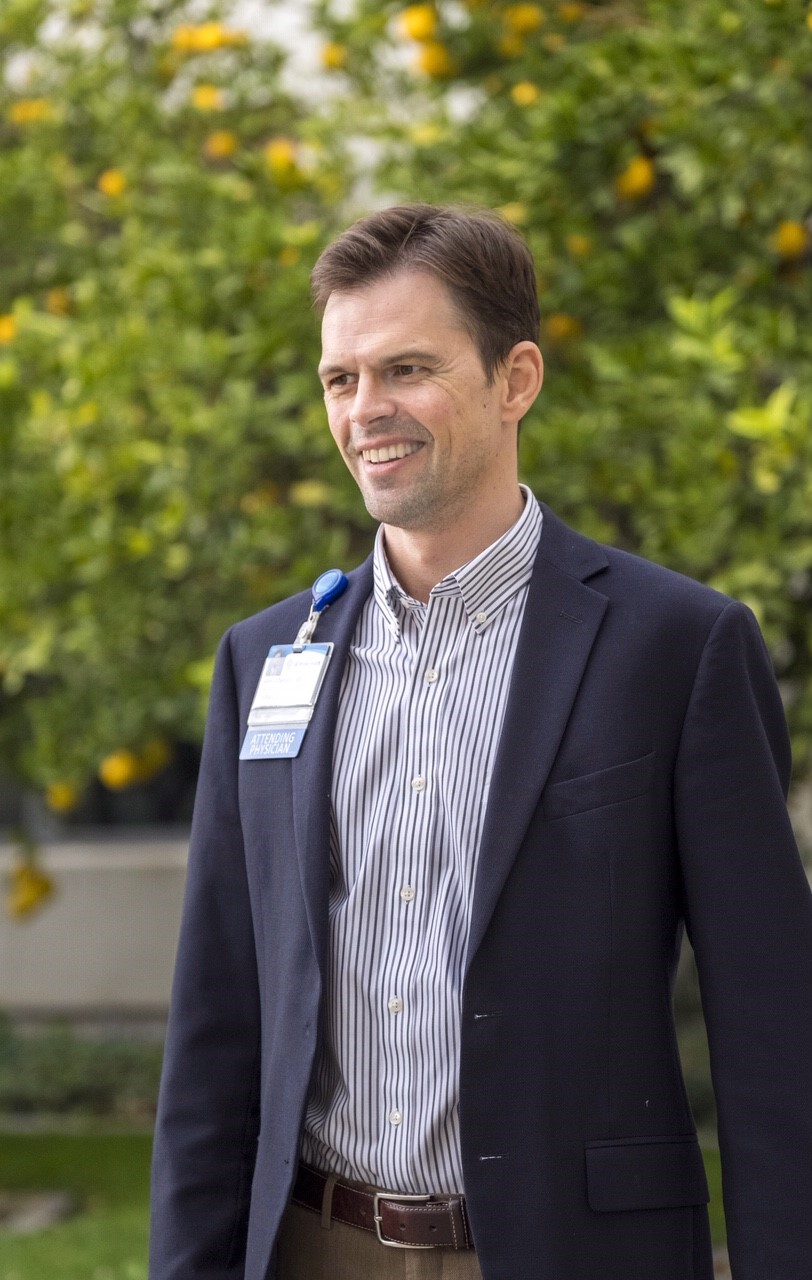How to ‘Operationalize’ Your New Year’s Resolutions
Catholic psychiatrist and ethicist Aaron Kheriaty offers spiritual tips on living out New Year’s intentions and responding constructively to the sex-abuse crisis.

Psychiatrist Aaron Kheriaty is the director of the medical ethics program for the School of Medicine at the University of California, Irvine. The author of The Catholic Guide to Depression, he spoke with Register Senior Editor Joan Frawley Desmond Jan. 10 about making good on New Year’s intentions and about surviving a Church abuse crisis that has demoralized the faithful.

Is the start of the new year a good time to set goals to reboot our spiritual life?
The notion that our spiritual life consists of beginning, and then beginning again, is a familiar theme for Catholics.
The new year is a time to begin again, and the Church’s liturgical year can also help us fulfill this goal. At different points during the liturgical year specific recurring themes focus on the proclamation of the kingdom of God and the call to repentance and renewal. We see this in the prophetic writings of the Old Testament and especially in the preaching of John the Baptist at the beginning of the New Testament.
We also begin anew every time we walk out of confession. God’s forgiveness and our appropriation of that grace should involve resolutions to improve in our spiritual life and grow in specific virtues. We aren’t “done with” confession after a couple of visits. Rather, it’s a practice to be routinely integrated into the fabric of our lives, recognizing that in our interior life we are striving to go step by step up an inclined plain.
Sanctification is a lifetime project that will never be completed while we are on this earth. So the notion of a recurrent new beginning, whether it happens on Jan. 1, or the beginning of Lent or of Advent, makes sense.
How can we boost the likelihood that our New Year’s resolution will stay on track?
There are real pitfalls for New Year’s resolutions, as we have probably experienced.
If you made one last year, can you even remember what it was, much less how you did with it?
One reason for this problem is that our New Year’s resolutions are often too generic or abstract. You say, “I want to lose weight” or “I want to work on my spiritual life this year.” Those are laudable goals, but unless you operationalize that intention, and make it very tangible and concrete, general aspirations won’t get you anywhere.
If you want to “pray more,” it would be much better to make a specific resolution that also includes a daily two-minute examination of conscience at the end of the day where you ask yourself, “Did I do that or not?”
It is also important to commit to something very specific, like, “I am going to spend 15 minutes every day in mental prayer at such and such a time and such and such a place.” Put it on your schedule, and protect that time.
The ideal place would be in front of the Blessed Sacrament; but if you can’t get to a church, commit to doing it at home at a specific time. Beforehand, make sure that you have removed distractions, like turning off your phone. If you schedule it in the morning, set the alarm and get up on time so you can make sure that it happens every day.
To make these resolutions work, we need to get down to that level of specificity. The question I ask myself is not: “Did I grow closer to God today?” but “Did I do my daily mental prayer for 15 minutes, or pray the Rosary, or whatever the concrete resolution was?”
So “Yes” to New Year’s resolutions, but the idea is to keep them small, specific, simple and tangible. Finally, you need to have a way to monitor your progress. Keep a pocket notebook that helps you review how you are doing, or the reason you failed to follow through. If today you hit the snooze button instead of getting up in time to pray, jot a note to do what you need to the next day to correct course and fulfill that daily goal.
Why do we struggle so much to unplug from work or our devices and make time for God? Do we have a skewed view of faith as a threat to our freedom?
We really need to examine our understanding of freedom and recognize that true freedom is something we acquire through true growth in virtue. Human freedom is not something to be placed on a pedestal and protected from any encroachment. That would be to turn freedom into an idol, which ends up actually diminishing my freedom. Freedom is not the arbitrary exercise of my will. And floating along in life, following my whims and impulses, is not an expression of freedom, but a sign of my enslavement to these feelings.
When I schedule time for prayer, I am actually exercising my freedom to commit to something I know is good. The true exercise of freedom is perceiving a good — the highest of which is union with God — and then committing in such a way that I pursue that good. Acting on this freedom requires growth in virtues, such as living fortitude or order, not giving up on prayer when I don’t feel like it.
If I go to prayer even when I am dry or distracted, it means I am rectifying my intention: I am doing it for the right reasons and not just out of selfish motives.
If I only pray when I am “inspired” and “the spirit moves me,” that isn’t much of an exercise of freedom or love.
You wouldn’t approach marriage this way and only talk to your wife when the spirit moves you. No, you live that commitment on your good days, when your heart is overflowing with affection, and on the days when your wife does something to get under your skin.
We live at a time when the exercise of religious freedom is viewed within the political and legal framework of growing anti-Christian bigotry. But are you saying that we also need to develop our freedom as believers in our own spiritual life, so we can act in ways that deepen our friendship with Christ?
Yes, that’s right. Think about the problem in this way: A 4-year-old child who has never played the piano before is not free to play the piano well. He can sit down and strike whatever keys he wants, but what you get is noise.
The concert pianist is able to play what he wants because he has exercised his freedom for many years in small and highly disciplined ways, like practicing hundreds of thousands of scales.
Our spiritual life is more or less the same. You can dream fantastic dreams of exercising your freedom in moments of great trial. You can imagine that if you were persecuted for your faith you would exercise your freedom for God. But you are only going to be capable of that if you have chosen God in millions of small ways leading up to that great trial.
You will not win in the spiritual Olympics if you haven’t disciplined yourself in the way a spiritual athlete would.
St. Paul used the analogy of athletics to describe the spiritual life and the way he disciplined his mind and body to unite himself to Christ and arrive at the finish line.
We can and should apply that approach to anything in life we want to improve on, including our relationship with God and our life of prayer.
The abuse crisis in the Church has left many Catholics feeling hopeless. Rather than beginning the new year with a fresh commitment to weekly Eucharistic adoration or monthly confession, they are tempted to leave the Church. What’s your advice for them?
The crisis we are facing is a crisis of fidelity to Our Lord, to his moral teaching and to the trust that was placed in people as pastors, spiritual fathers, shepherds and leaders.
The only answer to this crisis is greater fidelity, and that includes every single Catholic.
This is an opportunity to examine our own conscience and recommit with greater fidelity to love of Christ and love of neighbor.
It is only natural that lay Catholics are angry at their bishops. I am angry and appalled that many, though certainly not all of them, have failed in very serious ways. Anger is a natural response to any threat to my well-being and that of the people I love.
But what do I do with this anger? Here, an examination of the life of Aleksandr Solzhenitsyn, the Russian writer and concentration-camp survivor, is helpful.
Solzhenitsyn’s response to his unjust and brutal incarceration was extraordinary. He did not just shake his fist in rage at his oppressors, however justified that response might have been. Instead, he said, “I am going to use this time to examine my entire life from beginning to end.” He asked himself, “What are all the things I have done in the course of my life, however small, that contributed in some way to evil in the world and to the injustice in my own nation?” He took responsibility for his part.
It is easy for us to get angry and frustrated with our leaders, as we wait for them to fix the crisis and apologize for what they did or failed to do. We forget that we are also part of the Body of Christ. Every sin, no matter how apparently trivial, harms the Body of Christ.
If the Church is suffering in this way, if the Church is wounded and harmed by the sins of its members, I, too, am a part of that — I have contributed. I may not be a pedophile or a bishop who failed to protect people from priests who were sexual predators, but my life may not be well ordered in other ways.
What I can do right now is thoroughly and stringently examine my own life — with complete candor and honesty — and then make a general confession at the end of that searching self-inventory.
That’s important because I have a role to play in the renewal of the Church, just as I had a role in contributing to the problems in the Church and the world.
If every lay Catholic made that kind of stringent and searching examination of conscience over the next month, and then sought God’s forgiveness in confession, we would see an enormous renewal. God’s grace would flow into the Church as a result of ordinary Catholics attending to their own spiritual lives.
Many feel powerless. They tell themselves, “I didn’t cause these problems, and, therefore, I should leave.”
No. Begin by looking at yourself fearlessly. A good question to ask is, “In what ways have I failed to be faithful to God?” Furthermore, “When was the last time I went to confession in order to acknowledge my sins and seek forgiveness?”
Once you have your own house in order, then move to help the people closest to you, asking: How can you help your spouse, parents or children be more faithful?
Joan Frawley Desmond is a Register senior editor.
- Keywords:
- aaron kheriaty
- joan frawley desmond
- new year's resolutions
- sex-abuse crisis
- spiritual growth

















